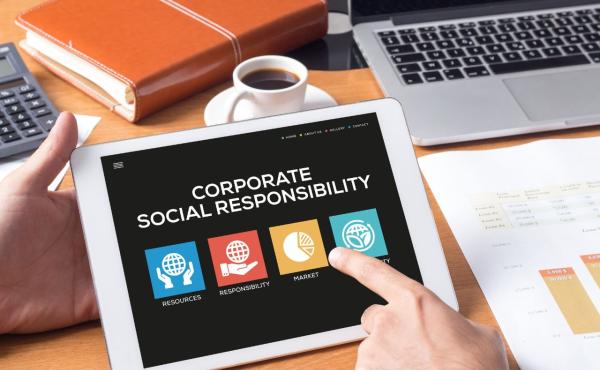
The ECGI blog is kindly supported by

Electrification in the Age of Sustainable Development
Interview with Michele Crisostomo, Chairman of the Board of Directors and of the Corporate Governance and Sustainability Committee of Enel S.p.A., by Guido Ferrarini, ECGI Fellow and Research Member
Guido Ferrarini: Enel’s corporate governance follows the ESG international best practices that you charted in a recent post. Your company may therefore offer an excellent case study on the connectedness between corporate purpose and sustainability that I analyzed in an ECGI law working paper. Could you briefly explain how Enel defines its corporate purpose and how relevant is this concept in the deliberations of the board that you chair?
Michele Crisostomo: Enel has a vision that goes beyond the corporate purpose embedded in its charter, i.e. producing, distributing, and selling electricity and operating in the energy sector in general, in the pursuit of profit.
Our purpose is further outlined through the commitments publicly undertaken over time, starting with the United Nations Sustainable Development Goals (SDGs), as implemented in our strategic plans and disclosed through our financial and non-financial statements.
Enel has thus directed its activities towards electrification powered by renewable sources and smart grids, seen as the most cost-effective and efficient way to decarbonize final energy consumption, such as transport, buildings, and industry.
Read in the light of such commitments and strategy, the reason for our work therefore becomes to light up and electrify the places where people live, work and move: an extraordinary mission to be carried out in harmony with the environment, in agreement with people and helping them to reach the electricity resource more easily at increasingly affordable costs.
This is complemented by a strong culture of openness at all the organizational levels. An example is our “open innovation” model: rather than managing our innovation challenges entirely in-house, we systematically open up to a global innovation ecosystem – made of innovation hubs, crowdsourcing platforms, the scouting of solutions from start-ups and universities – to leverage the interaction of creativity and entrepreneurship within and outside the company.
Our communications team has captured all these elements in the purpose statement that accompanies our corporate reporting and the communication campaigns: “Open power for a brighter future: we empower sustainable progress”.
This concept sets a clear path for the deliberations of the board: it represents the loadstar of the strategy as well as of internal controls, risk management, governance, and stakeholder dialogue.
The value of this approach is also evidenced in the loyalty and commitment of the people working with us and in the trust that customers and suppliers place in it. I believe that this confirms your view expressed in your paper that “corporate purpose should be larger than profit from a behavioural perspective if we want to motivate people to perform outstandingly and sustainably in organizations”.
--------
Guido Ferrarini: Company laws focus on the company’s interest (and to some extent on the group’s interest) as a yardstick for board deliberations and managerial actions. However, it is commonly accepted that the interests of stakeholders should also be considered and that sustainability issues should be factored in corporate strategy. Enel operates in several jurisdictions with a unique group structure, as 15 of your companies are listed on the stock-exchange in different parts of the world. In a similar challenging context, how would you answer the classic question: “For whom are Enel and the companies of its group directed and managed?”
Michele Crisostomo: A classic answer to this classic question is that Enel aims at achieving ‘sustainable success’, seeking to create value for the shareholders over the long term, taking into account the social importance of the Group’s business operations and the consequent need, in conducting such operations, to adequately consider all the interests involved. This is in line with the Italian corporate governance code that, in turn, follows the enlightened view of shareholders value.
In more concrete terms, the process we follow to define the objectives to be included in the strategic plan and the sustainability plan is based on a detailed and in-depth materiality analysis. After mapping the main stakeholders of the Group – e.g. business community, customers, financial community, national and international institutions, civil society and local communities, workers, suppliers and contractors – we identify their priority issues (through interviews and other forms of engagement) and compare them with the Group’s priorities and industrial strategy.
The results of the analysis flow in the Group’s priorities’ matrix, which gives a comprehensive view of the stakeholders’ expectations, including the issues that have a greater direct impact on the value of the company, i.e. the priorities indicated by the “financial community” stakeholder (e.g. investors; financial institutions; rating agencies and financial analysts).
Then, as you noted, Enel is a complex multinational group – following the strong growth realized also through significant international acquisitions carried out throughout the years – that faces the challenge resulting from the lack of a uniform legal framework and international general principles on group’s transactions and the different and even conflicting approaches as to the recognition of the ‘interest of the group’ in individual States’ company law.
Therefore, some years ago the legal counsels of the main listed companies of Enel Group teamed up with leading academics to draw uniform governance rules, which were not in contrast with applicable legislation in any of the countries in which the Group operates.
The Enel Group Corporate Governance Guidelines are the result of this in-depth analysis of the different legal systems: they set the principles on which the Group’s corporate governance system is based and lay down the common implementing principles on directors’ conflict of interests and on related party transactions, including a uniform definition of “corporate interest”, that can help answer your question about the wide range of interests taken into consideration in the management of the Group.
--------
Guido Ferrarini: Milton Friedman famously stated that the social responsibility of business is to increase its profits. However, there is little doubt today that the social responsibility of corporations extends beyond the pursuit of profits. Colin Mayer and other finance scholars emphasize the role of social value in the running of corporations even to the point of considering profits as a secondary goal. How would you define your position in this debate and what is Enel’s approach to similar issues in practice?
Michele Crisostomo:
I would answer that among the infinite ways of making legitimate profits, it is better to choose the one that creates value for the relevant stakeholders, as Enel’s case demonstrates.
In 2015 Enel Group decisively shifted its growth model from large-scale investments towards smaller, more numerous and more flexible renewable projects. Technologies such as solar and wind power generation achieved impressive results in the last decade in terms of efficiency improvements and cost reduction: this testified that a shift from fossil fuels to zero-carbon energy sources, leading to decarbonization, was not only feasible but also reachable at a competitive cost.
The strategic choice to switch to a sustainable business model, integrated along the entire value chain – including smart and digital grids and new services to enable the electrification of the energy demand – positioned the Group as an early leader of the energy transition, with a substantially lower risk profile, able to generate value by leveraging on this transition.
The value created by this inherently sustainable strategy benefits not only the shareholders, who have enjoyed attractive returns over time.
Renewables reduce the cost of the energy produced, that will be far less volatile thanks to a reduced dependency on commodities. Customers – who are the recipients of new electrification streams, such as the use of heat pumps for heating and cooling, the development of electric mobility and charging infrastructure – benefit thus from a decrease in their energy spending, alongside a reduction of their CO2 footprint.
Moreover, considering the globally diffused access to wind, solar, hydro and other zero-carbon energy sources, renewables can bring generation closer to consumption, reducing the dependency from foreign markets, with positive impacts on local employment and opportunities to promote regional value chains.
Interestingly, also the funding sources of Enel are linked to our broader sustainable strategy. The Group launched in 2019 the first SDG-linked bonds in the world, with the interest rate dependent on the achievement of ambitious decarbonization objectives and on the strengthening of renewable generation.
Committing ourselves to pay more interest if the relevant and measurable KPIs are not achieved (a so-called ‘green-pill’) provides a credible mechanism to back up our public commitments to sustainability-related goals. The decrease in the cost of debt we achieved thorough these and other similar instruments shows that the bondholders share the same confidence as the shareholders in our strategy.
--------
Guido Ferrarini: Under a “shared value” approach, commonly followed by large corporations like Enel, directors and managers reconcile the long-term maximization of shareholder wealth with the pursuit of social value. Rebecca Henderson recently suggested that this is one of the cornerstones for reimagining capitalism. Could you briefly indicate the type of cases in which Enel is able to maximize corporate profits while enhancing social value to a considerable extent?
Michele Crisostomo: The development of renewable energy projects involves a continuous presence in and engagement with local communities. Knowledge of specific local requirements and continually listening to the needs of stakeholders are fundamental for mapping as comprehensively as possible the potential positive, but also negative impacts that the Group’s activity has on the communities where our plants operate.
Since 2015 we have thus launched a new way of managing relationships with communities through a Creating Shared Value (‘CSV’) model that integrates socio-environmental factors within business processes and throughout the entire value chain.
A recent example of a practice that enhances the competitiveness of the company while simultaneously advancing the economic and social conditions of the communities in which it operates is represented by the ‘energy communities’. Through these associations, citizens, businesses, local authorities join forces to equip themselves with plants for the self-production of energy from renewable sources for immediate consumption, for storing it in storage systems (and using it when needed) or even for selling their excess energy to the grid (prosumer).
The advantages for the local communities in terms of cost-reductions and incentives connected to such zero-kilometer energy are added to those for Enel, that offers services that may range from the construction of photovoltaic systems to the creation and technical / economic management of the community itself.
Another example of application of CSV methodology along the entire value chain can be found in the infrastructure and network stream, where we replaced conventional electromechanical meters with so-called “smart meters”, i.e. electronic meters that enable consumption levels to be read in real time and optimized, and contracts to be managed remotely. Through this innovative tool we can offer new services that assist customers in transitioning to a low-carbon economy and support efficiencies. Moreover, it is a good example of circular economy: for the replacement of first-generation smart meters, we developed a plastic regeneration process, starting from plastic coming from dismissed smart meters.
--------
Guido Ferrarini: In my paper cited above, I argued that the “enlightened shareholder value” perspective, which is widely followed also in law and practice, should be integrated with the consideration of ethical values and of their impact on corporate management. Could you briefly mention some cases in which Enel’s board would likely be willing to solve the trade-offs between profit and social value with reference to moral obligations rather than to the crude calculus of long-term shareholder value?
Michele Crisostomo: Sustainability – embedded in our strategy – guides our business model and the behaviour of Enel’s managers, as well as the corporate culture.
In this sense, sustainability acts as the game changer you mentioned in your paper, to the extent that not only regulation, but also public commitments to international conduct guidelines and ethical standards influence our activities and the same pursuit of profit.
This is true for our investments: as publicly declared, around 94% of them will be aligned with the SDGs in the next three years.
We favour those projects that can support individuals, businesses, and cities to improve their energy consumption, powered by renewable sources and smart grids, in a cost-effective and efficient way. This is the actual impact on society and on the real economy we want to achieve, and these are the kind of projects that are brought to the attention of the board.
Projects that, after careful examination, we do not consider sustainable from an environmental or social side, although perfectly lawful, will not be carried out.
Apart from all considerations instrumental to increasing the reputation of the firm and to attracting a generation of employees, customers and investors more inclined towards ESG issues, we can make Mahatma Gandhi’s thought our own: “To believe in something, and not to live it, is dishonest”.
-----------------
Michele Crisostomo is Chairman of the Board of Directors and of the Corporate Governance and Sustainability Committee of Enel S.p.A.
Guido Ferrarini is a founding member and ECGI Fellow, and Professor of Business Law and Capital Markets Law at the University of Genoa, Department of Law and Director of Centre for Law and Finance.
Corporate Purpose and Sustainability (28 Dec 2020) is available at ECGI (working paper 559/2020): /working-paper/corporate-purpose-and-sustainability
This article reflects solely the views and opinions of the author(s). The ECGI does not, consistent with its constitutional purpose, have a view or opinion. If you wish to respond to this article, you can submit a blog article or 'letter to the editor' by clicking here.




